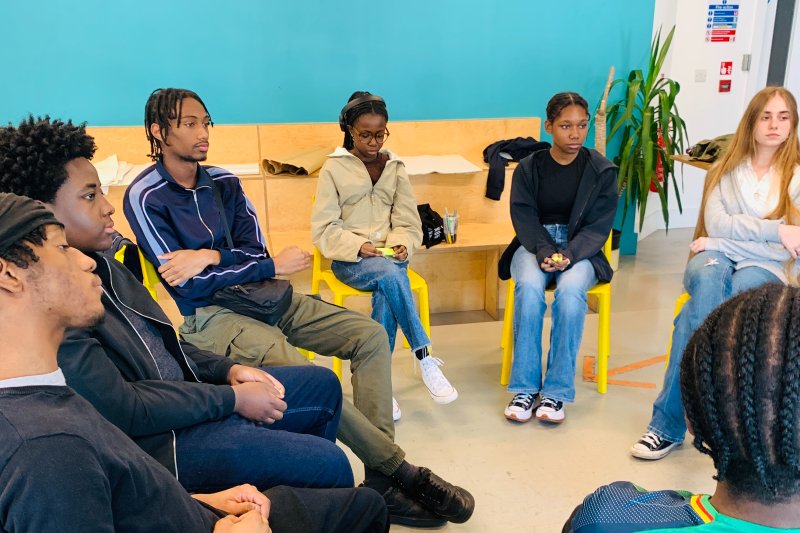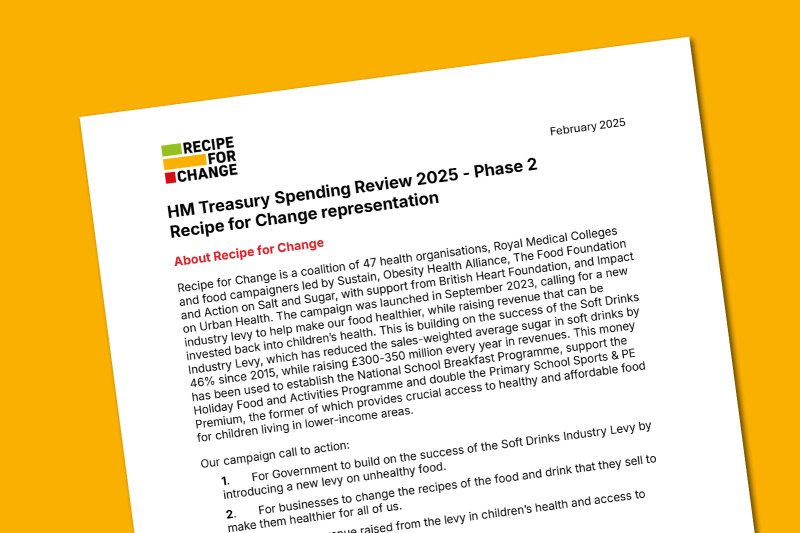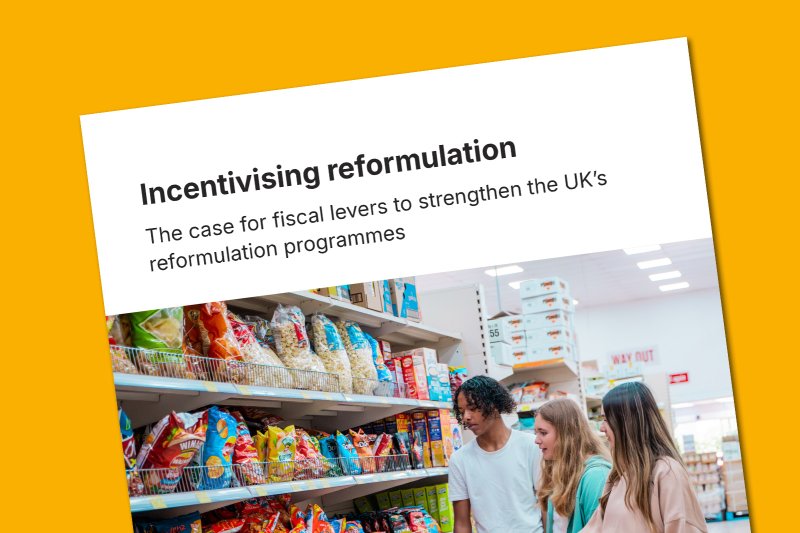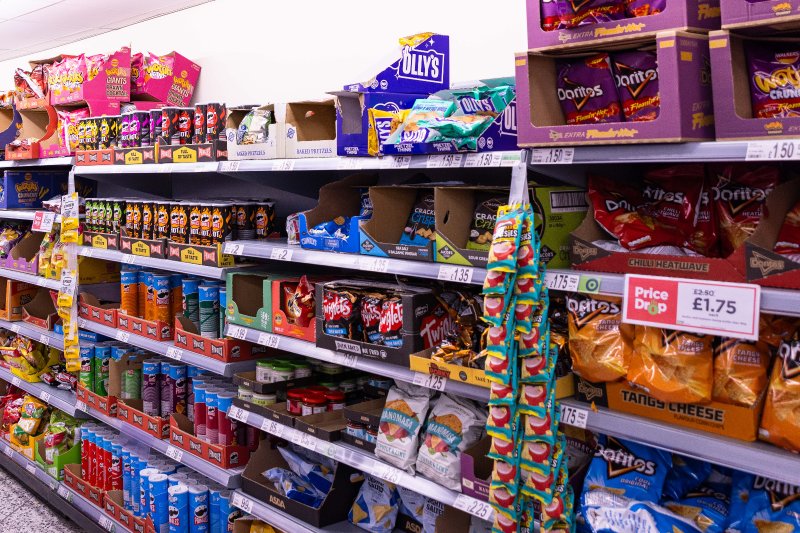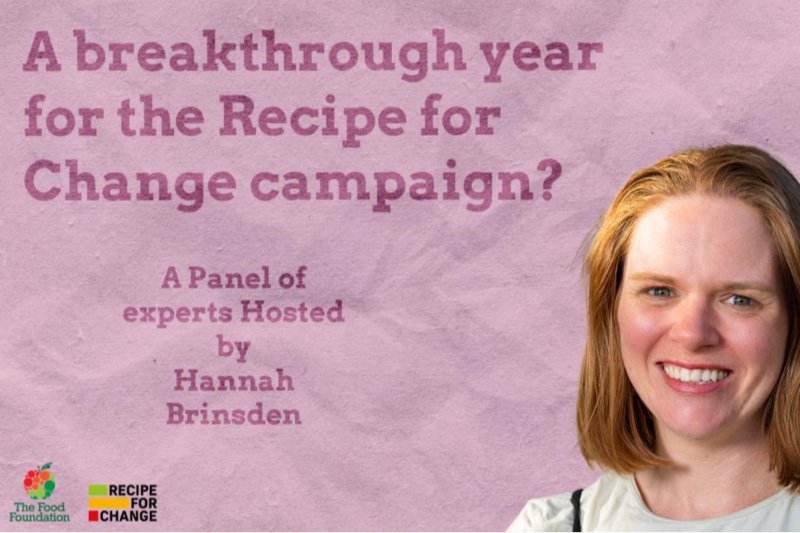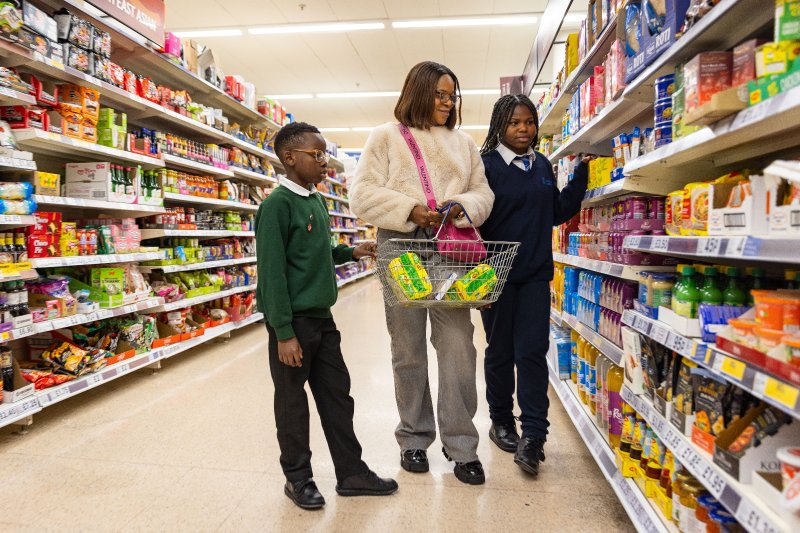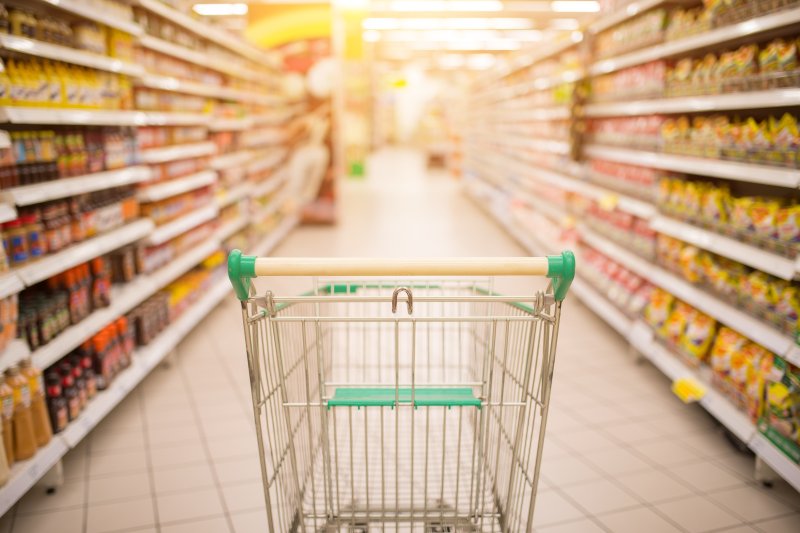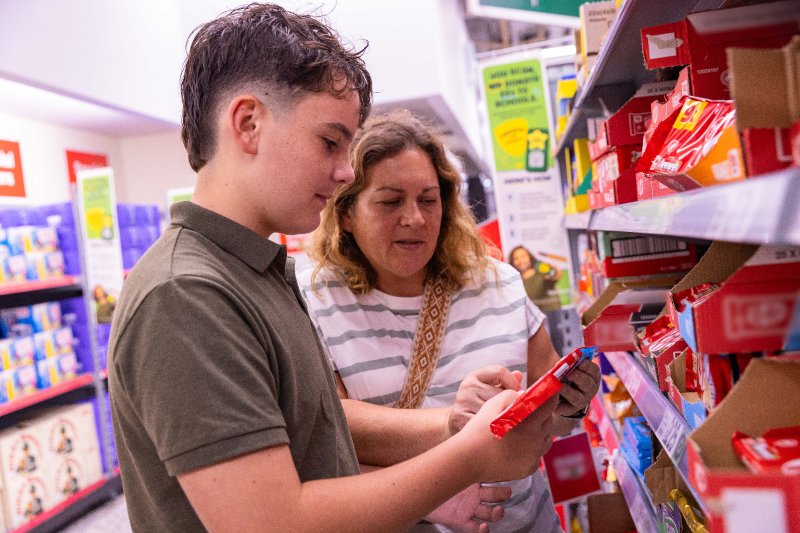Blog
Five food and farming stories from the Labour Party conference
Sustain was there to make the case for better policies for food and farming. We round up of some of the key stories, and unpick the Labour policy agenda.
This weekend the Labour Party gathered for their conference in Liverpool. Sustain was there to make the case for better policies for food and farming, running events with the Nature Friendly Farming Network to discuss sustainable farm policies and with our Recipe for Change partners on shifting towards healthier food and prevention of dietary illness.
Here’s our round up of some of the key food and farming related stories.
1. Pledge to develop a better environmental land management scheme and tackle supply chain fairness
Shadow environment, food and rural affairs minister Daniel Zeichner confirmed at a Sustain/Nature Friendly Farming Network event that Labour would back an improved environmental land management scheme as getting rid of it would be too disruptive for farmers. He also recognised the need for food system reform and a cross governmental approach. Elsewhere, Labour’s new nature and rural affairs minister, Toby Perkins, told the conference that the party would take action to stop farmers from being ripped off if it wins the next election. Farming groups, including Sustain, have been campaigning on this, as production costs are rising but increased prices at the point of sale are not being shared fairly across the supply chain. Labour sources told the Guardian that “fighting for justice for neglected rural communities, who have had their local areas polluted, and been ripped off by big businesses such as supermarkets, was a key part of their election campaign”. Toby Perkins may have been inspired by our “Unpicking Food Prices” report, which was the theme of our farming event with Nature Friendly Farming Network at the conference. In it we highlighted how little farmers make for their prices – in some cases less than a penny of the profit. Toby Perkins told an event at the conference: “I think we have to bring the supermarkets into this question as well, because clearly the pressure to drive down costs all the time within farming is significant, and the price that they are able to gain from supermarkets in the UK isn’t always comparable with what farmers overseas will be able to get. I’m aware that many farmers and food producers feel badly let down.”
2. Labour will see through unhealthy food advertising, but will they go further?
Sustain and our allies were out in force at conference making the case for Labour to take a robust approach to protecting child health. At a Recipe for Change panel with the Institute for Government, we laid out the evidence case for an industry levy to drive a reformulation of manufactured food high in salt and sugar, and raise additional revenues for other child health interventions. Momentum for this policy is growing, and not just amongst child health campaigners. Food giant Danone have previously come out in support of aligning tax with healthy food. At our event, a Sainsbury's spokesperson called for a level playing field for food industry regulation to create a level playing field and more transparent industry data gathering and sharing. Elsewhere, a young BiteBack activist held shadow health secretary Wes Street to account on advertising regulations, telling an audience of conference goers about her own experience of being congratulated by a pizza company on the day she finished her GCSEs. The Labour policy agenda commits to seeing through a 9pm watershed and online ban on unhealthy food marketing, which members of Sustain and the Obesity Health Alliance have campaigned for over many years. However, despite leading to people spending rather than saving money, the shadow health secretary continues to cite cost of living concerns when pushed around implementing the legislation on unhealthy price promotions or building on the success of the Soft Drinks Industry Levy (SDIL). Whilst these seem to be off the agenda pre-election or in manifesto terms, Wes Streeting's focus on prevention included a clearly expressed desire to drive further healthy food industry reformulation. Meanwhile shadow farming minister Daniel Zeichner MP teased attendees with his vision of a "super powerful food minister" championing healthier food as well as reviving the recommendations from the National Food Strategy, whilst shadow chief secretary to the Treasury Darren Jones MP also talked about HMT's role in supporting the health missions and prevention of obesity. With Labour's commitment to cross-departmental cooperation on delivering better food and better health, there's still a lot to play for.
3. Disappointment as Free School Meals fails to make it on to the policy agenda
"Every child should have access to healthy food and school is the place we can make it happen," said 16 year old Lucy at a fringe event hosted by Bite Back and the School Food Review group, of which Sustain is also a member. However, the current system with a punitive £7400 eligibility threshold leaves 900,000 children excluded. Outside conference, children from a Liverpool primary school were campaigning with their local Labour MP Ian Byrne to expand free school meals to more children and were happy to gain the support of Greater Manchester's metro mayor Andy Burnham. Whilst more primary children in London, Scotland and Wales are now receiving meals, our campaign has calls out the postcode lottery of access - you can help by emailing your MP to ask what they can do to help stop this.
Whilst Labour's policy platform includes rolling out free breakfast clubs, healthy school lunches for more pupils are still off the menu. Longstanding advocate of healthy school food and chair of the all-party parliamentary group Sharon Hodgson called on conference goers to watch Sustain's "brilliant" Say Yes to School Food For All film. She talked about the long term economic benefits of universal meals systems, as shown in Sweden where a 3% increase in lifetime earnings is associated with their programme, rising to 6% for those from most disadvantaged backgrounds, and cited research showing potential for universal school food to deliver almost £100 billion in long term economic benefit. Copies of the New Statesman handed out to conference goers also includes a powerful article by Sean Turner of School Food Matters on why Labour should expand school meals.
Over in the youth zone, shadow education secretary Bridget Phillipson expressed sympathy and regret at not including school meal expansion during an interview with former children's commissioner Anne Longfield. However when pushed on Labour's long standing opposition to the £7400 as a correct threshold for entitlement, and the lack of a policy proposal on this, she refused to even commit to putting it under review.
In the absence of national leadership, local areas across England are stepping up their own activities, most notably in London where mayor Sadiq Khan has provided an extra £135 million in funding to support primary schools to provide meals for every child who wants them. Southwark councillor Jasmine Ali also spoke powerfully at an NEU school food panel about the catalytic effect of their universal primary school meals policy for more than 10 years in improving outcomes for pupils and their current work to expand access to secondary pupils. The power of local communities and councils to build their own roadmaps to expanding healthy school food is the focus of a Sustain school food webinar on 18 October.
4. Pledge to protect standards in trade deals and secure a better deal with the EU
Nick Thomas Symonds, shadow cabinet minister without portfolio, told an event that if elected a new Labour government would protect high standards in the UK and secure better terms in the Trade Co-operation Agreement with the EU. Elsewhere, DEFRA shadow environment secretary Steve Reed and shadow farm minister Daniel Zeichner also reassured conference attendees that their party would maintain high environmental and animal welfare standards in trade deals. Sustain has been campaigning on the need to protect UK pesticide standards in trade deals.
5. Labour releases its policy agenda ahead of conference
Ahead of the conference opening, the Labour party revealed its policy agenda, with individual policies being worked up and then endorsed by delegates. Sustain was pleased to see a number of our campaign asks included in the programme including: a land use framework, diversity in farm models, a commitment to 50% local or higher standard produce in public procurement, protecting British standards in trade deals and the 9pm ban on junk food advertising on television, among others. The Sustainable Food Partnership will be pleased to see recognition of local leadership in reaching net zero, which food system change could play a key part in. However, we were disappointed that there was no signal that free school meal policy would be reformed by revisiting the punitively low qualification threshold, or by setting us on a path for free school meals for all. We will continue to engage Labour in the year ahead to make the case for that – you can help by signing our e-action here. There is a link to the full document below, but we pulled out policies most relevant to food and farming, under headings of interest to our membership.
UK Farming
- Establish a land-use framework in England that promotes sustainable farming, aids in achieving our climate objectives, and enhances biodiversity.
- Ensure support for British farming is sensitive to the diverse range of farming models in the UK.
- Uphold the UK's position as a global leader in animal welfare standards.
- Promote the consumption of locally sourced, sustainable food, bolstering farmers through public procurement targets.
- Provide support to agricultural cooperatives, including new entrants.
- Safeguard British standards in trade agreements, preventing any weakening.
- Aim to double the size of the co-operative sector in the UK. Work with the sector to ensure that co-operatives can reach their full potential, removing barriers as we stand up to challenges and embracing opportunities in new ways
Addressing Child Poverty
- Break down the barriers to opportunity for every child at every stage with a bold and ambitious strategy to tackle child poverty, as a focus of a cross-government effort to break the class ceiling. It will be the responsibility of all government departments to tackle the fundamental drivers of poverty and take action to address the big issues that hit those on the lowest incomes the most
- Introduce fully-funded free breakfast clubs in every primary school, ensuring accessibility for children with special educational needs and disabilities (SEND).
- Pursue efforts to reduce child poverty, engaging child poverty experts in our cross-government mission taskforce.
- Strive for family financial stability and access to essential food and supplies.
- Encourage school meals to be prepared in school kitchens using locally sourced, nutritionally sound ingredients whenever possible.
- Collaborate with activists and community organizations to guarantee food security for all.
- Deliver fundamental reform of Universal Credit to tackle child poverty and offer a proper safety net.
Child health/prevention
- Provide each child with a comprehensive children's health plan, which includes implementing a 9:00 pm watershed for junk food advertising on television and prohibiting paid advertising of less healthy foods on online media.
- Improve living standards and ensure that everyone can afford a healthy diet and has opportunities for exercise
- Ensure government and the public sector focus on delivering better outcomes for those on lower incomes and make narrowing and eliminating inequality through the health system – and all our public services – a priority
Climate and Net Zero
- Outline a clear decarbonization roadmap to enable businesses [presumably including food businesses] and workers to plan for the future.
- Draw inspiration from local government leadership on achieving net zero and collaborate with local authorities to harness their leadership in the net zero effort.
- Align policy with our obligations under the Paris agreements to aim for 1.5°C and cooperate with likeminded countries pushing for action
Procurement
- Ensure that 50% of all public sector food purchases are either locally produced or adhere to higher environmental production standards
- Use government procurement to support local businesses, cutting red tape and streamlining the bidding process to level the playing field for small businesses
Trade
- Begin the development of long-term structures to facilitate cooperation between the UK and EU in critical areas such as the green just transition, energy, cultural exchange, tackling cross-border crime, and removing trade barriers in food manufacturing and supply to protect supply chains.
- Strive to secure a veterinary and phytosanitary agreement with the EU, mutual recognition of professional qualifications, and enhanced scientific collaboration through Horizon.
- Uphold high standards in workers' rights, environmental protections, and production standards.
- Prioritize trade agreements that support jobs, businesses, and livelihoods while promoting Labour values worldwide, including human rights, workers' rights, trade union freedom, equality, environmental protection, and consumer standards.
- Evaluate the most effective measures to prevent environmental harm, modern slavery, and human and labor rights abuses in both private and public sector supply chains, including implementing effective due diligence rules.
You can see the full Labour policy agenda here.
Orla was Head of Public Affairs for Sustain and also lead the communications for Sustain’s work on Good Food Trade. She worked to promote the opportunities and threats for food, farming and fishing as we exited the EU.
Orla Delargy
Head of Public Affairs
Sustain
Published 10 Oct 2023
